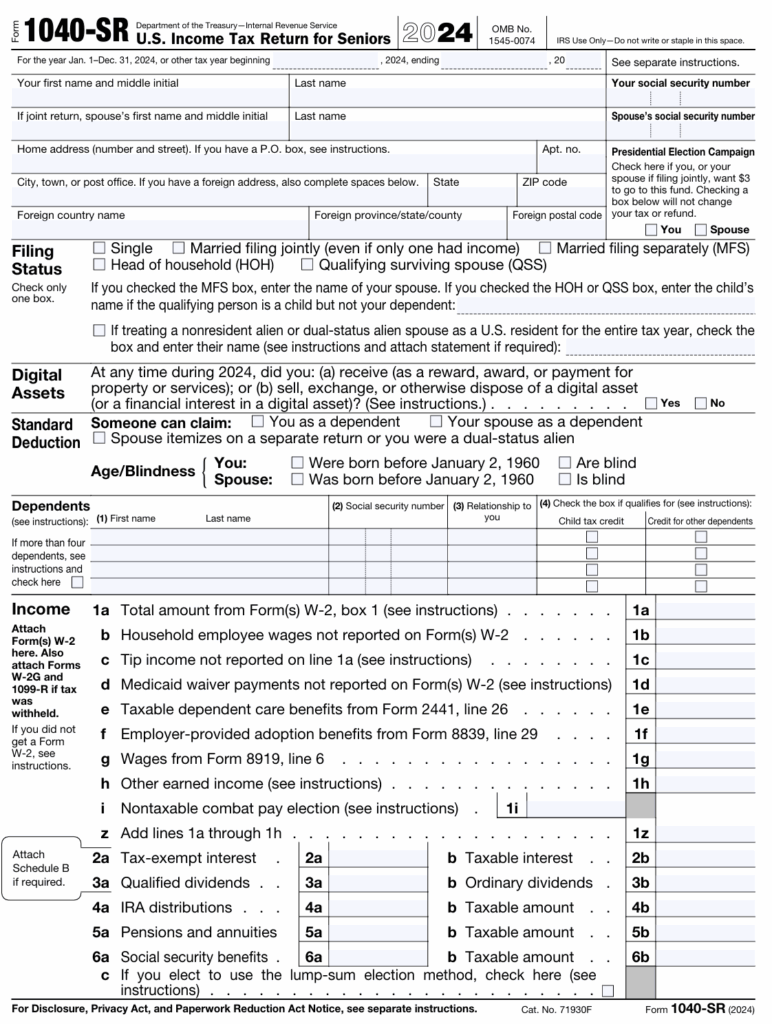How to maximize your tax benefits with the FEIE Standard Deduction
Wiki Article
All About the Foreign Earned Revenue Exclusion: Maximizing Your Standard Reduction Benefits
The Foreign Earned Earnings Exemption (FEIE) provides a beneficial chance for united state citizens living abroad to decrease their tax responsibilities. Recognizing the eligibility requirements is essential for those looking for to benefit from this exclusion. Claiming the common deduction can boost overall tax benefits. Managing this procedure includes careful interest to detail and an awareness of usual risks. Discovering these aspects can supply clarity and optimize prospective tax obligation advantages.Recognizing the Foreign Earned Revenue Exemption (FEIE)
The International Earned Revenue Exemption (FEIE) permits united state residents and resident aliens functioning abroad to leave out a portion of their international incomes from federal income tax obligation. This stipulation acts as a monetary alleviation system, making it possible for migrants to keep a bigger share of their earnings made in foreign countries. By decreasing gross income, the FEIE helps ease the concern of dual taxes, as individuals might additionally undergo tax obligations in their host countries. The exemption applies just to made earnings, that includes earnings, incomes, and expert costs, while passive income and investment gains do not certify. To gain from the FEIE, individuals should submit specific types with the internal revenue service, describing their international earnings and residency - FEIE Standard Deduction. Understanding the nuances of the FEIE can greatly influence monetary preparation for united state people living overseas, making it necessary for migrants to stay educated concerning this beneficial tax obligation stipulationQualification Criteria for the FEIE
To get the Foreign Earned Earnings Exclusion (FEIE), people have to satisfy particular eligibility criteria. This consists of gratifying residency demands, passing the physical existence examination, and establishing a tax home in a foreign country. Each of these aspects plays an important function in determining whether one can benefit from the exclusion.Residency Demands
Fulfilling the residency demands is necessary for individuals looking for to get the Foreign Earned Income Exemption (FEIE) To be eligible, taxpayers should establish a bona fide residence in an international country or nations for an uninterrupted period that commonly extends a whole tax year. This requirement stresses the requirement of a much deeper connection to the international place, moving past mere physical existence. People should show their intent to live in the international country and have established their living scenario there. Factors such as the length of remain, kind of real estate, and neighborhood area participation are considered in determining residency. Meeting these criteria is important, as failure to do so may disqualify one from benefiting from the FEIE.Physical Presence Test
Establishing eligibility for the Foreign Earned Earnings Exclusion (FEIE) can likewise be accomplished with the Physical Visibility Examination, which requires people to be literally existing in an international country for at least 330 full days during a successive 12-month duration. This test is valuable for those that might not satisfy the residency demand but still stay abroad. The 330 days have to be full days, indicating that any type of day spent in the USA does not count towards this total. It is important for individuals to keep precise documents of their traveling dates and areas to support their cases. Effectively passing this test can substantially minimize taxable earnings and boost financial results for expatriates.Tax Obligation Home Place
Tax home place plays a crucial function in identifying qualification for the Foreign Earned Earnings Exemption (FEIE) To qualify, a specific have to establish a tax obligation home in a foreign nation, which implies their key location of organization is outside the United States. This stands out from a mere house; the individual have to conduct their operate in the foreign nation while maintaining a significant connection to it. The internal revenue service calls for that the taxpayer can demonstrate the intent to continue to be in the foreign area for an extended duration. Additionally, keeping a home in the united state can make complex eligibility, as it might suggest that the individual's real tax obligation home is still in the United States. Understanding this criterion is important for making the most of FEIE advantages.Exactly how to Declare the FEIE on Your Tax Obligation Return
Claiming the Foreign Earned Revenue Exclusion (FEIE) on a tax obligation return needs careful interest to information and adherence to certain IRS standards. Taxpayers must first verify eligibility by satisfying either the bona fide home test or the physical existence test. When eligibility is verified, they need to complete IRS Type 2555, which details foreign made revenue and relevant information concerning their tax home.It is vital to report all foreign income accurately and preserve proper documents to support claims. Taxpayers need to also know the maximum exemption restriction, which undergoes yearly changes by the internal revenue service. Declaring Kind 2555 along with the yearly tax return allows taxpayers to exclude a portion of their international revenues from united state taxes. It is suggested to seek advice from a tax obligation professional or IRS resources for upgraded info and guidance on the FEIE procedure, ensuring conformity and maximization of potential advantages.

The Standard Deduction: What You Need to Know
How does the basic deduction influence taxpayers' total monetary circumstance? The basic reduction offers as a considerable tax advantage, minimizing gross income and possibly reducing tax responsibilities. For the tax year 2023, the basic deduction is set at $13,850 for single filers and $27,700 for wedded couples submitting jointly. This reduction simplifies the declaring process, as taxpayers can go with it rather than itemizing reductions, which requires in-depth record-keeping.
Taxpayers making foreign income might still assert the common deduction, benefiting from lowered gross income also while using the Foreign Earned Income Exclusion (FEIE) Nonetheless, it is necessary to note that the common reduction can not be combined with itemized reductions for the very same tax year. Understanding the conventional deduction permits taxpayers to make enlightened choices regarding their tax techniques, optimizing readily available advantages while making certain compliance with IRS policies.
Methods for Optimizing Your Reductions
Maximizing deductions under the Foreign Earned Income Exemption needs a clear understanding additional reading of made earnings limits and the advantages of declaring housing exemptions. Additionally, making use of Kind 2555 properly can improve the capacity for click resources considerable tax obligation financial savings. These approaches can greatly influence the total tax liability for expatriates.Understand Gained Earnings Limitations
While numerous expatriates look for to minimize their tax burden, recognizing the gained earnings limitations is necessary for properly leveraging the Foreign Earned Revenue Exemption. The Irs (INTERNAL REVENUE SERVICE) establishes details limits that dictate the maximum quantity of foreign earned revenue eligible for exclusion. For the tax obligation year 2023, this limitation is $120,000 per qualified individual. Surpassing this threshold might lead to taxation on the earnings above the limitation, decreasing the benefits of the exemption. To maximize reductions, migrants ought to maintain precise records of their international earned earnings and assess their qualification for the exemption every year. Strategic planning around these restrictions can considerably enhance tax savings, enabling expatriates to maximize their financial circumstance while living abroad.Claiming Real Estate Exclusion Conveniences
Numerous expatriates overlook the prospective advantages of claiming the Housing Exclusion, which can substantially reduce their gross income. This exemption allows individuals living abroad to deduct specific real estate expenditures from their gross income, making it less complicated to meet monetary commitments without sustaining considerable tax responsibilities. To optimize this benefit, expatriates ought to validate they certify based on their home and work circumstances. Additionally, recognizing eligible expenditures-- such as lease, energies, and upkeep-- can enhance the general reduction. Keeping complete documents of these costs is crucial for substantiating cases. By purposefully steering with the Housing Exemption, expatriates can especially reduce their tax obligation problem and retain even more of their revenues while living overseas, ultimately improving their financial health.Use Type 2555 Properly
Utilizing Type 2555 properly can substantially boost the monetary advantages available to migrants, specifically after making the most of the Real estate Exemption. This type enables people to claim the Foreign Earned Earnings Exemption, which can substantially minimize gross income. To take full advantage of deductions, migrants ought to validate they satisfy the qualifications, consisting of the physical presence examination or the bona fide house test. It is important to properly report all international earned earnings and to keep thorough records of eligibility. In addition, making use of the Housing Exemption in tandem with Form 2555 can additionally lower overall tax obligation liability. By comprehending the intricacies of these forms, expatriates can enhance their tax obligation circumstance and preserve more of their hard-earned earnings while living abroad.Usual Pitfalls to Avoid When Filing Your Tax Obligations Abroad

Regularly Asked Concerns
Can I Claim Both FEIE and the Foreign Tax Obligation Credit History?
Yes, an individual can assert both the Foreign Earned Earnings Exclusion (FEIE) and the Foreign Tax Obligation Credit (FTC) Nonetheless, they need to ensure that the same revenue is not made use of for both benefits to avoid dual benefits.What Occurs if I Surpass the FEIE Revenue Restriction?
Going Beyond the Foreign Earned Income Exclusion (FEIE) revenue limitation results in the ineligibility for the exemption on the excess amount. This could lead to taxed revenue in the United States, calling for appropriate tax obligation filings.Are There Any Kind Of State Tax Obligation Implications for FEIE?
State tax obligation implications for the Foreign Earned Revenue Exemption (FEIE) vary by state. Some states might strain foreign earnings while others follow government exclusions, making it necessary for people to get in touch with state-specific tax policies for clarity.
Just How Does FEIE Affect My Social Safety And Security Benefits?
The Foreign Earned Revenue Exclusion (FEIE) does not directly affect Social Safety advantages. Revenue excluded under FEIE may affect the calculation of ordinary indexed month-to-month incomes, possibly affecting future benefits.Can I Revoke My FEIE Election After Declaring It?
Yes, a person can revoke their Foreign Earned Earnings Exemption (FEIE) political election after claiming it. This abrogation needs to be performed in writing and submitted to the internal revenue service, sticking to particular guidelines and target dates.Understanding the Foreign Earned Revenue Exemption (FEIE)
The Foreign Earned International Exclusion (FEIE) allows U.S. citizens and people aliens working abroad to exclude a leave out of their foreign earnings from federal income taxEarnings Taxpayers earning international income might still declare the standard reduction, profiting from lowered taxable earnings even while utilizing the Foreign Earned Revenue Exemption (FEIE) Making the most of reductions under the Foreign Earned Revenue Exemption requires a clear understanding of earned earnings restrictions and the advantages of declaring real estate exclusions. While lots of expatriates look for to decrease their tax worry, understanding the gained income limitations is essential for effectively leveraging the Foreign Earned Revenue Exemption. Going Beyond the Foreign Earned Revenue Exemption (FEIE) earnings limitation results in the ineligibility for the exemption on the excess amount.
Report this wiki page